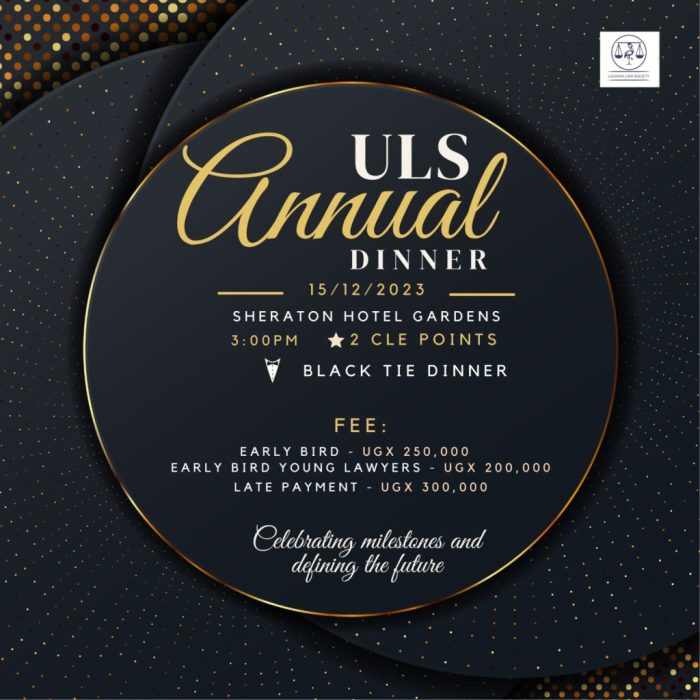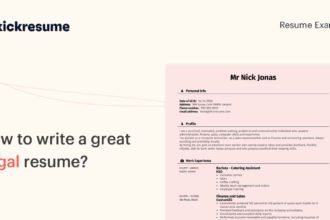dinner law abogados are central to understanding the intricate relationship between legal practices and dining establishments. This evolving field combines culinary culture with legal expertise, as abogados specialize in addressing the unique challenges faced by restaurants, caterers, and food service providers. By examining the historical context and significance of dinner law, we uncover its growing relevance in today’s legal landscape.
With the rise of food-related regulations and the complexity of business operations in the culinary world, dinner law abogados play a crucial role in guiding their clients through a myriad of legal issues. From compliance with health and safety standards to navigating contracts and liability concerns, these specialized lawyers ensure that dining establishments can thrive while adhering to the necessary legal frameworks.
Introduction to Dinner Law Abogados
Dinner law represents a unique area of legal practice that intertwines the culinary world with legal obligations and rights. This concept is rooted in the understanding that food, dining experiences, and the surrounding legal frameworks play a pivotal role in society. Dinner law encompasses various aspects, including food safety regulations, liability in dining establishments, and the rights of consumers when dining out.
Abogados, or lawyers, specializing in this field navigate the complexities of food law, ensuring compliance with regulations while protecting the interests of their clients, whether they are restaurateurs, suppliers, or patrons. Their role is crucial in addressing disputes that arise in culinary settings, from contract negotiations to liability issues.
Historical Context and Evolution of Dinner Law
The historical development of dinner law can be traced back to early food trade regulations and the emergence of dining establishments. As societies evolved, so did the need for legal frameworks governing food safety and consumer rights. Initially, food laws were rudimentary, focusing primarily on the prevention of fraud and misrepresentation.With the industrial revolution and the growth of the restaurant industry, more complex regulations emerged.
The establishment of health codes and food safety standards became essential to protect consumers from foodborne illnesses. Over time, the legal landscape evolved to include broader issues such as fair pricing practices and the ethical sourcing of ingredients.The evolution of dinner law reflects societal changes, including increased awareness of food allergies, dietary restrictions, and the emergence of new dining trends such as farm-to-table and organic food movements.
Legislation continues to adapt to these changes, providing a foundation for abogado’s practices in this dynamic and ever-evolving field.
Finding an experienced professional can be a daunting task, especially when searching for an abogado criminalista near me. A local criminal lawyer not only understands the legal landscape in your area but also offers personalized assistance in navigating your case. It’s essential to choose someone who is familiar with local laws and can advocate for your best interests.
“Dinner law encapsulates the intersection of culinary experiences and legal obligations, highlighting the importance of regulations in safeguarding public health and consumer rights.”
Key Services Offered by Dinner Law Abogados
Dinner Law Abogados specializes in providing a wide range of legal services tailored to the unique needs of clients in the dining and hospitality industry. With a deep understanding of the complexities involved in this sector, their team is dedicated to delivering expert legal solutions that protect businesses and ensure compliance with relevant laws and regulations. The firm addresses various legal challenges that restaurant owners, chefs, and hospitality professionals encounter, offering services that cover everything from contract negotiations to regulatory compliance.
Their expertise enables clients to navigate the legal landscape effectively, minimizing risks and enhancing operational success.
Legal Services Provided
Dinner Law Abogados offers a comprehensive suite of legal services designed specifically for the dining and hospitality industry. These services include:
- Contract Negotiations: Assisting clients in drafting, reviewing, and negotiating contracts with suppliers, distributors, and service providers to ensure favorable terms.
- Licensing and Permits: Guiding businesses through the application processes for necessary permits and licenses, including alcohol licenses and health permits.
- Employment Law Compliance: Offering counsel on labor laws, employee rights, and workplace regulations to ensure compliance and protect clients from potential disputes.
- Litigation Support: Representing clients in legal disputes, including contract breaches, employee lawsuits, and regulatory violations.
- Intellectual Property Protection: Assisting clients in safeguarding brand trademarks, trade secrets, and proprietary recipes.
Common Legal Issues Addressed
Dinner Law Abogados routinely encounters various legal issues within the dining sector. Understanding these common challenges helps clients prepare and prevent potential legal entanglements. Key issues include:
- Disputes over lease agreements, particularly concerning terms and conditions affecting property use.
- Compliance with health and safety regulations imposed by local and state authorities.
- Employee disputes related to wages, discrimination, and workplace safety.
- Challenges in maintaining food safety standards and dealing with associated liability claims.
- Intellectual property infringement cases regarding branding and recipe protection.
Benefits of Specialized Abogado Services
Engaging specialized abogado services, such as those offered by Dinner Law Abogados, provides numerous advantages for clients in the dining industry. These benefits include:
- Expert Knowledge: Lawyers with specific experience in the dining sector understand the nuances of related laws, which can lead to better outcomes than general legal advice.
- Risk Mitigation: By proactively addressing legal issues, specialized lawyers reduce the likelihood of costly litigation and regulatory penalties.
- Tailored Strategies: Legal solutions are customized to a client’s unique business model, ensuring that strategies align with operational goals.
- Time and Resource Efficiency: Allowing legal professionals to manage complexities enables clients to focus on running their businesses without distraction.
- Informed Decision-Making: Access to expert legal advice empowers clients to make informed decisions that affect their business’s longevity and success.
Legal Framework Surrounding Dinner Law

The legal framework of dinner law encompasses a variety of regulations, guidelines, and case laws that dictate how dining establishments operate and how they must comply with the law. This legal structure ensures that practices within the culinary sector uphold safety, fairness, and ethical standards, ultimately protecting both consumers and businesses.Dinner law is influenced by numerous legal components, including health codes, labor laws, and contract regulations.
These laws differ across jurisdictions but share the common goal of providing a safe and equitable dining experience. Understanding these laws is essential for restaurant owners and patrons alike, as they define the rights and responsibilities of each party involved in dining.
If you’re facing legal challenges, consulting an expert like abogado alex hanna can make a significant difference. His expertise in various legal areas ensures that you receive tailored advice and representation. Understanding your rights and options is crucial, and having a dedicated attorney by your side can help navigate the complexities of the legal system effectively.
Relevant Laws and Regulations
Several key laws and regulations govern the practices within dinner law. These include health and safety regulations, labor laws, and consumer protection statutes. Here are some critical legislative aspects:
- Health Codes: These regulations ensure that restaurants maintain sanitary conditions, proper food handling, and storage practices. Violations can lead to fines and even closure.
- Labor Laws: These govern employee wages, working hours, and conditions. Compliance is vital for avoiding lawsuits and ensuring fair treatment of workers.
- Consumer Protection Laws: These laws protect patrons from unfair practices, ensuring transparency in pricing and quality standards in food service.
Key Legal Precedents and Case Studies, Dinner law abogados
Legal precedents play a significant role in shaping the dinner law landscape. Noteworthy cases highlight the importance of compliance with health and safety regulations as well as labor rights. Some landmark cases include:
- Case Study A: A notable legal battle where a restaurant faced significant penalties for violating health codes, leading to stricter enforcement of regulations.
- Case Study B: A landmark decision regarding employee rights in the food service industry, which established crucial standards for minimum wage and working conditions.
- Case Study C: A consumer rights case that set a precedent for transparency in menu pricing, ensuring consumers are well informed about the costs of their meals.
Comparative Analysis of Dinner Law Jurisdictions
Different jurisdictions exhibit varying approaches to dinner law, reflecting local customs, culture, and legal traditions. The following table illustrates the comparative framework of dinner law across several key regions:
| Jurisdiction | Health Regulations | Labor Laws | Consumer Protection |
|---|---|---|---|
| United States | Established federal and state health codes. | Minimum wage laws vary by state. | Strong consumer protection laws. |
| European Union | Common health and safety standards. | Comprehensive labor rights across member states. | Rigorous consumer protection directives. |
| Australia | State-specific health regulations. | National minimum wage laws. | Consumer Law Act ensuring fair trading. |
Challenges Faced by Dinner Law Abogados

Dinner law abogados encounter a multitude of challenges while navigating the complexities of dinner law cases. These challenges often stem from the unique nature of the culinary industry, which is subject to a myriad of regulations and legal frameworks that can vary significantly from one jurisdiction to another. Moreover, the interactions between culinary professionals, consumers, and regulatory bodies can lead to intricate legal disputes that require adept handling.One of the most common challenges faced by dinner law abogados is the rapid evolution of food safety regulations and standards, which can create confusion and uncertainty for clients.
With ongoing changes in health codes, labor laws, and business regulations, staying compliant can be a daunting task. This necessitates abogados to be well-versed in both existing laws and anticipated changes to effectively advise their clients.
Common Challenges in Dinner Law Cases
The challenges within dinner law cases can be multifaceted, often involving both legal and operational issues. Key challenges include:
- Compliance with Health Regulations: Abogados must ensure that their clients adhere to stringent health and safety regulations, which can vary by state and locality. This includes understanding the nuances between local health codes and federal regulations.
- Liability Issues: Dinner law abogados frequently tackle liability claims related to foodborne illnesses or accidents occurring within dining establishments. These cases can be particularly challenging due to the burden of proof required to establish negligence.
- Contractual Disputes: Issues related to vendor agreements, supplier contracts, and employment contracts are common. Abogados must navigate complex legal documents and relationships to resolve disputes effectively.
- Intellectual Property Protection: Protecting unique recipes, branding, and culinary innovations can be a challenge. Abogados need to understand both copyright and trademark laws to safeguard their clients’ interests.
Successful Strategies Employed by Abogados
In facing the aforementioned challenges, dinner law abogados adopt several successful strategies that enhance their practice and client relations. One effective strategy is proactive legal counsel, which involves advising clients on compliance issues before they become legal problems. By conducting regular legal audits, abogados can identify potential compliance gaps and mitigate risks effectively.Another strategy involves fostering strong relationships with regulatory agencies.
By establishing open lines of communication, abogados can help their clients navigate regulatory requirements more smoothly and advocate effectively on their behalf when disputes arise.Additionally, leveraging technology to streamline case management and research helps abogados stay ahead of legal developments. Digital tools can facilitate faster access to case law and regulatory updates, allowing for timely advice and decision-making.
Evolving Trends Affecting Dinner Law Practice
The landscape of dinner law is continuously evolving due to several current trends that impact how abogados operate. These trends include:
- Increased Focus on Sustainability: With consumers demanding more environmentally friendly practices, lawyers must understand regulations surrounding sustainable sourcing and waste management.
- Rise of Food Delivery Services: The shift towards online ordering and delivery has changed the way restaurants operate, creating new legal challenges related to liability and contract law.
- Health and Wellness Movement: As dietary preferences evolve, abogados need to address legal implications surrounding allergen disclosures and health claims made by food establishments.
- Social Media and Marketing Regulations: Legal implications of social media marketing, including endorsements and advertising standards, have become essential considerations for dining businesses.
Future of Dinner Law Abogados

The future landscape of dinner law practices is poised for significant transformation. As societal norms evolve and technology advances, abogados in this field must remain agile and responsive to changes. Analyzing emerging trends and identifying key technological influences will be crucial for legal professionals to thrive in this dynamic environment.
Emerging Trends in Dinner Law Practices
The dinner law sector is witnessing several trends that will shape its future. These trends encompass shifts in consumer behavior, regulatory reforms, and an increasing focus on sustainability.
- Health and Safety Regulations: With heightened awareness of public health, stricter health and safety regulations are likely to be instituted, impacting how dining establishments operate.
- Increased Demand for Transparency: Consumers are increasingly advocating for transparency in sourcing and food preparation, compelling restaurants to adopt more open practices.
- Focus on Sustainability: The emphasis on sustainable dining practices is growing, prompting restaurants to implement eco-friendly initiatives and comply with environmental laws.
Technological Advancements Influencing the Dinner Law Sector
Technological advancements are reshaping dinner law practices, offering new opportunities and challenges. Understanding these technologies is essential for abogados to provide relevant legal counsel.
- Digital Ordering Platforms: The rise of online ordering and delivery services requires legal frameworks to address liability issues and contractual obligations.
- Data Protection Technologies: With the increasing collection of customer data, compliance with data protection laws becomes crucial. Abogados must be well-versed in regulations like GDPR.
- Artificial Intelligence: AI is streamlining operations and improving customer experiences, yet it raises questions about accountability and liability that legal professionals must navigate.
Recommendations for Abogados to Adapt
To thrive in the evolving dinner law landscape, abogados need to embrace proactive strategies. These recommendations will help legal professionals stay ahead of the curve.
- Continuous Education: Engaging in ongoing education about emerging trends and legal technologies will ensure abogados remain informed and relevant.
- Networking and Collaboration: Building strong relationships with industry stakeholders can provide insights into regulatory changes and best practices.
- Embrace Technology: Utilizing legal technology tools can enhance efficiency and accuracy in handling cases, making abogados more competitive.
- Focus on Client Education: Educating clients about compliance and legal issues in the dinner law sector helps foster trust and long-term relationships.




